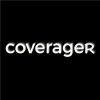Philips helps Humana move beyond traditional care
Royal Philips, a global leader in health technology, has announced a collaboration with Humana, one of the leading health and well-being companies in the U.S., to help improve care and health outcomes for select high-risk Medicare Advantage members. Through an integrated approach, Humana has implemented two programs that leverage Philips’ medical alert services and remote member monitoring (RMM) solutions to actively monitor at-risk Medicare Advantage members, encourage more timely interventions and improve care delivery.
“Our goal is to continue to find ways to help our Medicare Advantage members stay longer and safer in their homes. We believe our work with Philips will help offer our members and their caregivers more in-home support and help them to stay engaged and focused on prevention.” – Susan Diamond, Humana’s Home Business Segment President.
Program #1
Humana is identifying members who are at-risk and offering them Philips Lifeline medical alert service, including AutoAlert, Lifeline’s proven fall detection technology, supported by Philips CareSage predictive analytics. Early referrals of patients with chronic conditions, and those at risk of falls, can help enable timely care and interventions, while simultaneously improving clinical outcomes [1]. By providing seniors with 24/7 remote access to trained care specialists who can dispatch the right kind of help, this program will help support Humana’s at-risk Medicare Advantage members in their wish to age-in-place. It can also help reduce unnecessary and costly hospital readmissions [2] which in turn can help lead to overall improved patient experience, higher quality of care and more efficient resource utilization. Philips Lifeline is available on select Humana Medicare Advantage plans offered nationwide.
Program #2
Humana is also identifying a pilot group of members with severe CHF. Philips is providing members with kits that include an interactive tablet that syncs data from connected measurement devices via wireless technology. These devices, including a weight scale, blood pressure monitor and pulse oximeter, allow members to self-manage their condition, and share health information with their care manager daily. This data will be utilized to support Humana care teams in making informed and proactive care decisions with the pilot group in an effort to help to reduce unnecessary readmissions.


